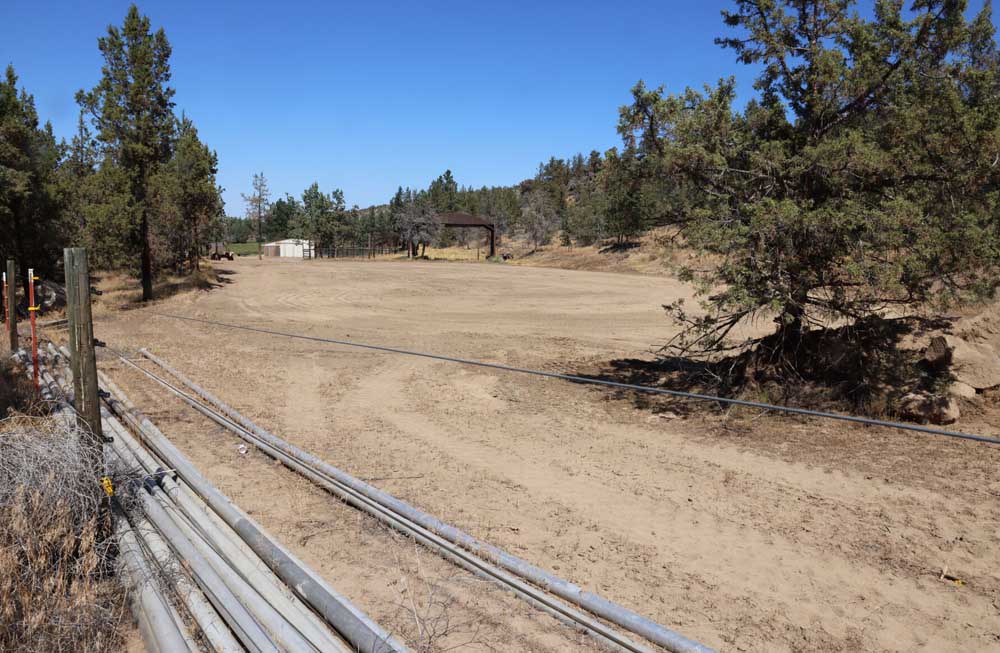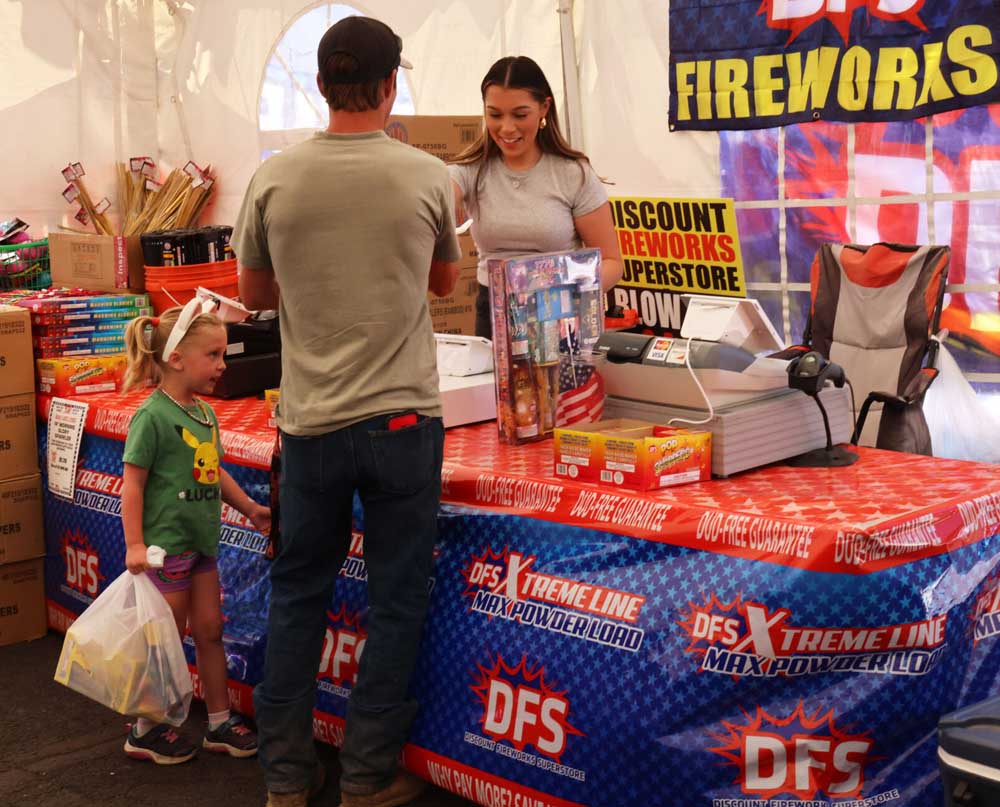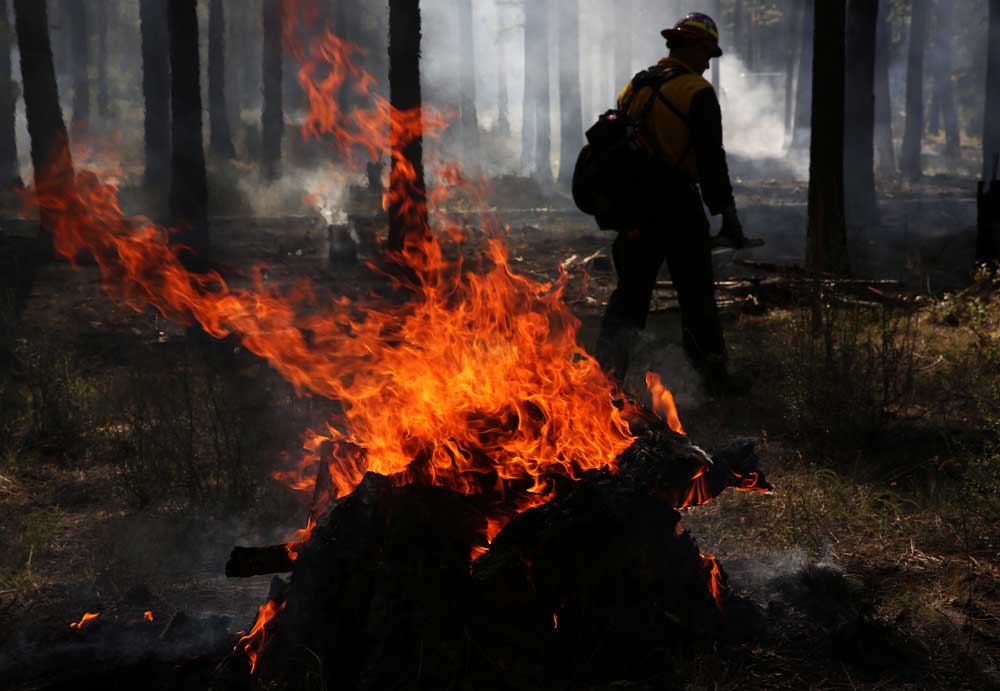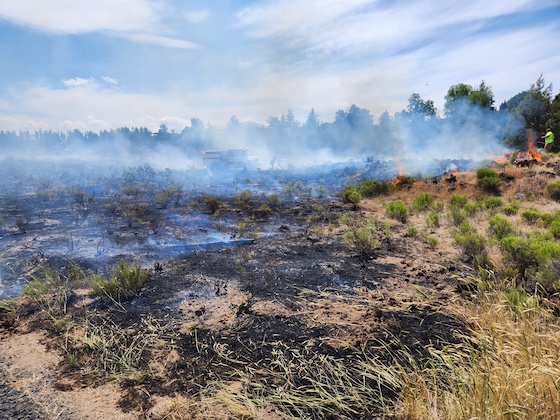What is the Redmond Safe Parking program?
Published 5:00 pm Wednesday, August 24, 2022

- FILE- The previously-proposed location for the safe parking program in north Redmond. City officials said Aug. 29 that the Pershall Way location was no longer under consideration.
Emotions were on full display August 23 as attendees crowded into the Redmond city council chambers to voice their support or their concerns surrounding the Redmond Safe Parking Program.
Some were scared to the point of tears about the program expanding into their neighborhood; others were adamantly supportive of the program and its potential for success.
What is the Redmond Safe Parking program?The program allows people struggling with homelessness to temporarily park their vehicles – anything from RVs to passenger cars — and sleep at designated sites in Redmond. Currently, the program has two locations in the city; one at Mountainview Fellowship Church, 1475 SW 35th St and the second at VFW Post 4108, 491 SW Veterans Way.
The city council meeting August 23 focused on expanding the program to a third site, this one north of the Dry Canyon near 19th and Pershall.
The pilot program began last October after the city council approved $50,000 from Redmond’s ARPA funding budget — funds coming from the federal government’s American Rescue Plan Act.
Rick Russell, pastor of Mountainview Fellowship Church and organizer of the program, has fundraised an additional $500,000 for the program.
Since its inception, Russell said about 12 people have used the Redmond Safe Parking Program. Most, Russell said, moved on from the program to find stable housing or a more permanent place for their RVs, such as a family member’s private property. A few others moved on to less stable living arrangements, he noted.
The program is not for people working through mental health or addiction issues or long-term homelessness. It explicitly bans drugs and alcohol at the site.
Instead, the parking program is for people who are experiencing temporary homelessness and want help.
“When people get stabilized they can begin to think and plan longer term,” Russell said. “That stability really becomes a launch pad for people to move toward greater stability in their lives, and that’s what this program does.”
Among the current users at the safe parking program, one works as a contractor and has no stable place to live, so he drives to the site each night to sleep in his car. Another is a former electrician who owned property in Eagle Crest until a brain injury stopped him from being able to earn a living.
Russell said nearly half of the program’s participants have been employed. According to Russell, they commute to work just like everyone else and are tired when they get home — just like everyone else.
Russell said some people come into the program and remain for just a few weeks until they find better arrangements. Others may take a couple of months to find housing. The average stay is about 60-90 days, he said, for participants get back on their feet.
According to Russell, the program is purposefully small. Usually, there are only between two and four participants at a time. This ensures workers keep a controlled safe and clean environment.
Location & SafetySafety was one of the main driving factors behind the packed council hall. Many voiced concerns that expanding the location to the north end of Dry Canyon would increase the risk of criminal activity and lower property values.
But, according to Russell, there hasn’t been any criminal activity and there have been no complaints from neighbors since starting the program at Mountainview.
According to Russell, the new site will be closely monitored. If something does happen, Lewis said that neighbors can call the Redmond Police Department or Deschutes County Sheriff’s office.
Russell said so far the program has avoided problems. At Mountainview, the parking lot has proven to be a safer, cleaner place with program participants living there overnight.
Before they arrived at the church, Russell said they would find bottles, drug paraphernalia, clothes and other items around their parking lot, he said.
When people started living in the lot, the participant began notifying RSPP if anyone arrived uninvited. According to Russell, even litter disappeared when the program started up.
Russell said the program may seem to invite chaos, but “it turns out to be the opposite.”
Many who attended the council were worried not just for their safety — but also for the safety of the people taking part in the program.
“It’s not the program,” said Rick Torassa, who lives in the area. “It’s the location. The way the program is operating at the church is perfect. It’s absolutely perfect.”
He argued that the Pershall location is unsafe. It’s dark and has wild animals like coyotes, badgers and skunks. It is not connected to services like water and sewer, Torassa said.
He proposed nine different locations around Redmond that he believes could work better, including where the new police department will be constructed or Homestead Park on NW Canal Blvd.
Guidelines/RequirementsParticipants in the program must agree to numerous rules in order to remain on site.
First, they must sign a “Be Neighborly” agreement with a laundry list of rules, including quiet hours from 9 p.m. to 7 a.m., no tents or improvised camping, no drugs or alcohol, vehicles must remain operable, pets must be on leashes, all personal property must remain inside vehicles and no dumping of RV or trailer sewage or water is permitted. Additionally, no fires or barbecues are allowed.
Portable toilets will also be included and, if needed, Russell said they can contract with a waste management company to service the site.
“The cleanliness of the site is very important to us,” Russell said.
If anyone violates these rules Sierra Hopper, the case manager for the program, said “they will be kicked out.”
Additionally, every private entity that decides to host the program will be able to create their own criteria for it. For instance, the current VFW location requests that homeless veterans are prioritized.
Everyone in the program must also work with a case manager to find stable housing.
Russell said they will help participants in any way they can, explaining that if someone doesn’t have health insurance that they’ll connect them with the Oregon Health Plan. If someone has parking tickets, they’ll help them navigate the process.









